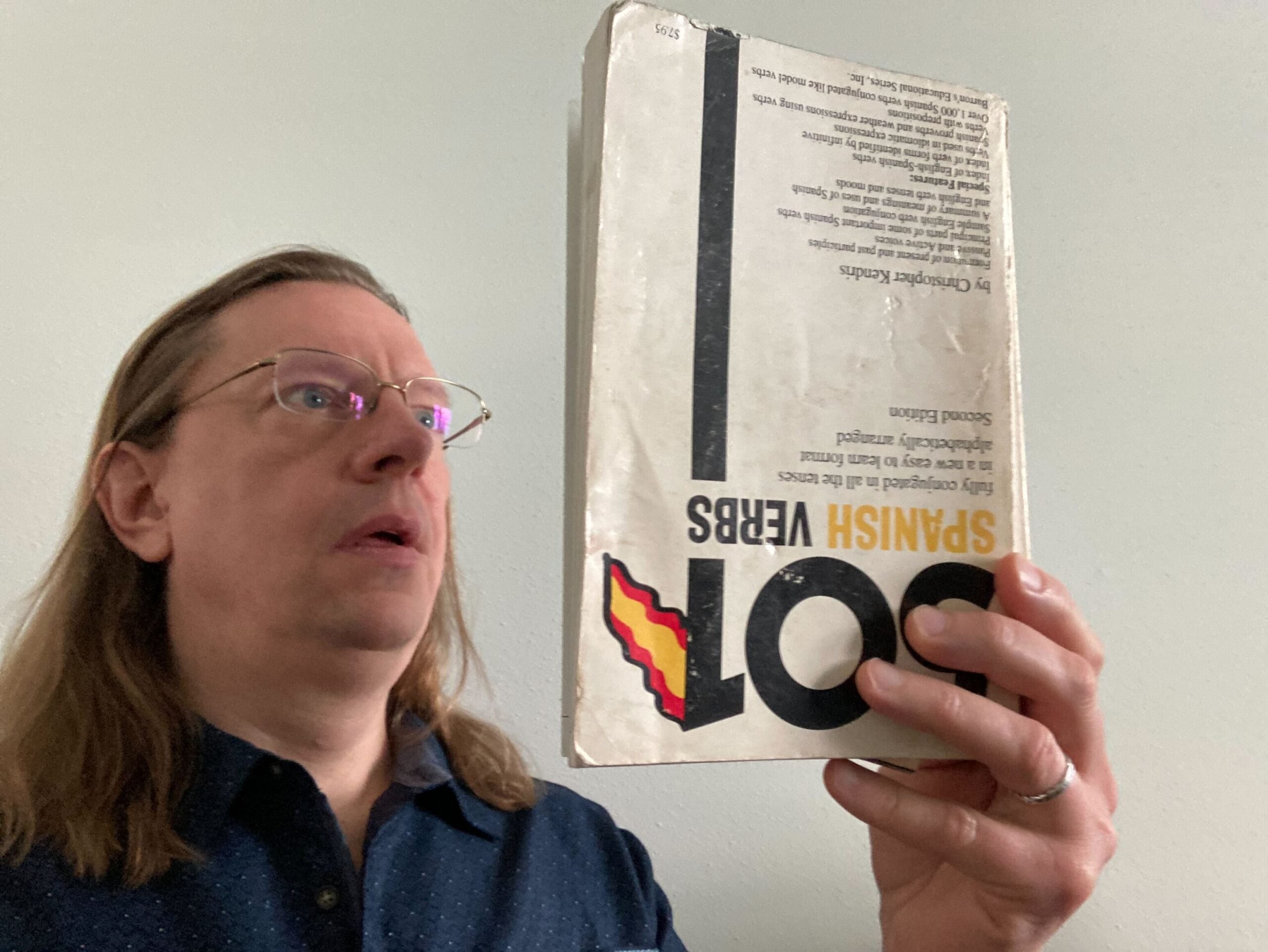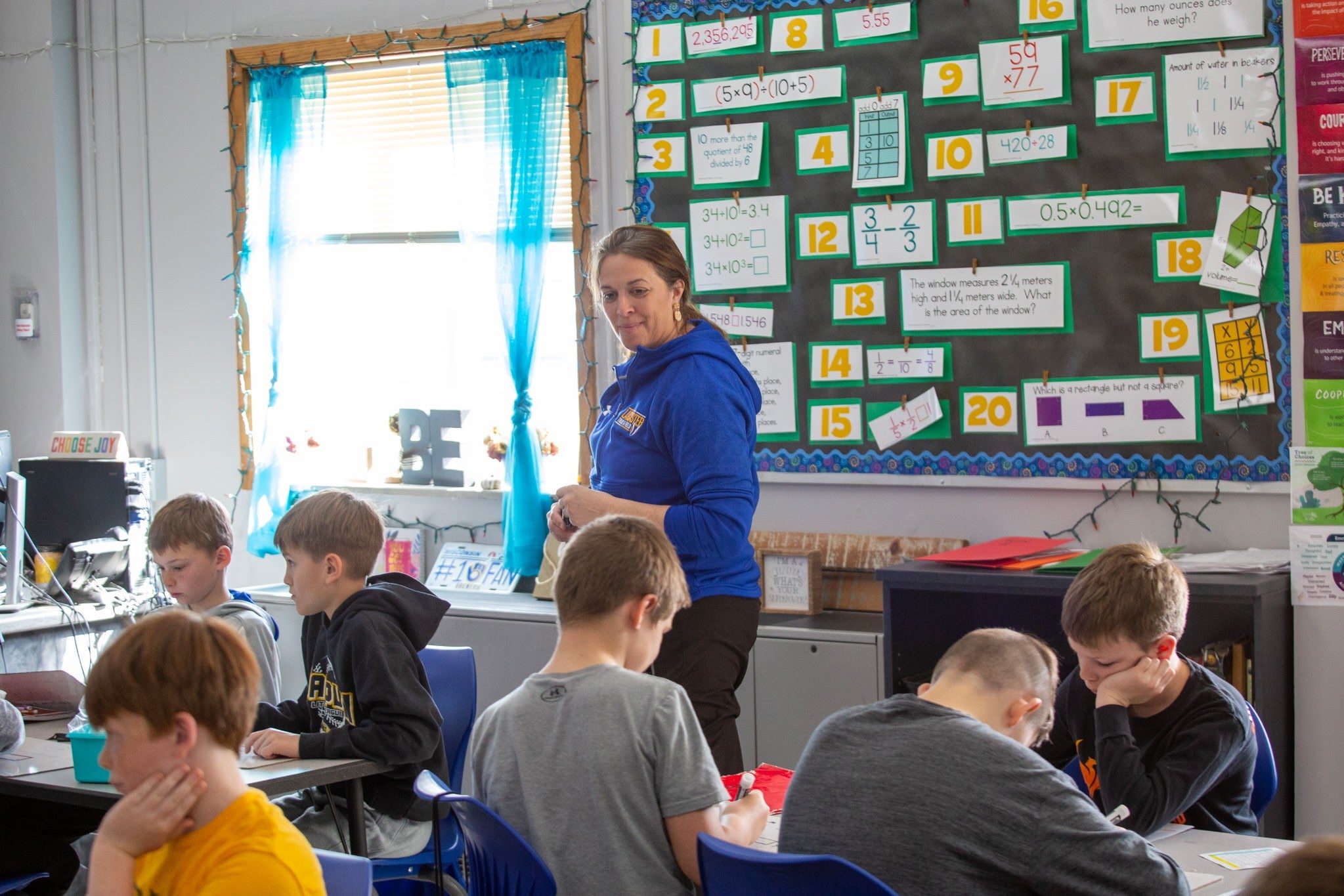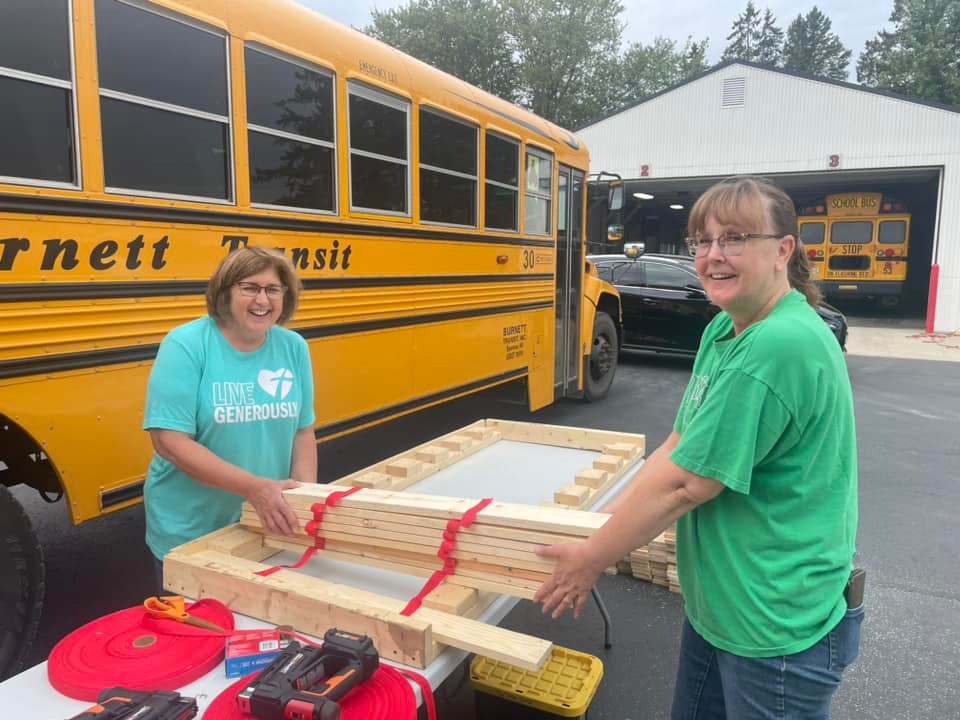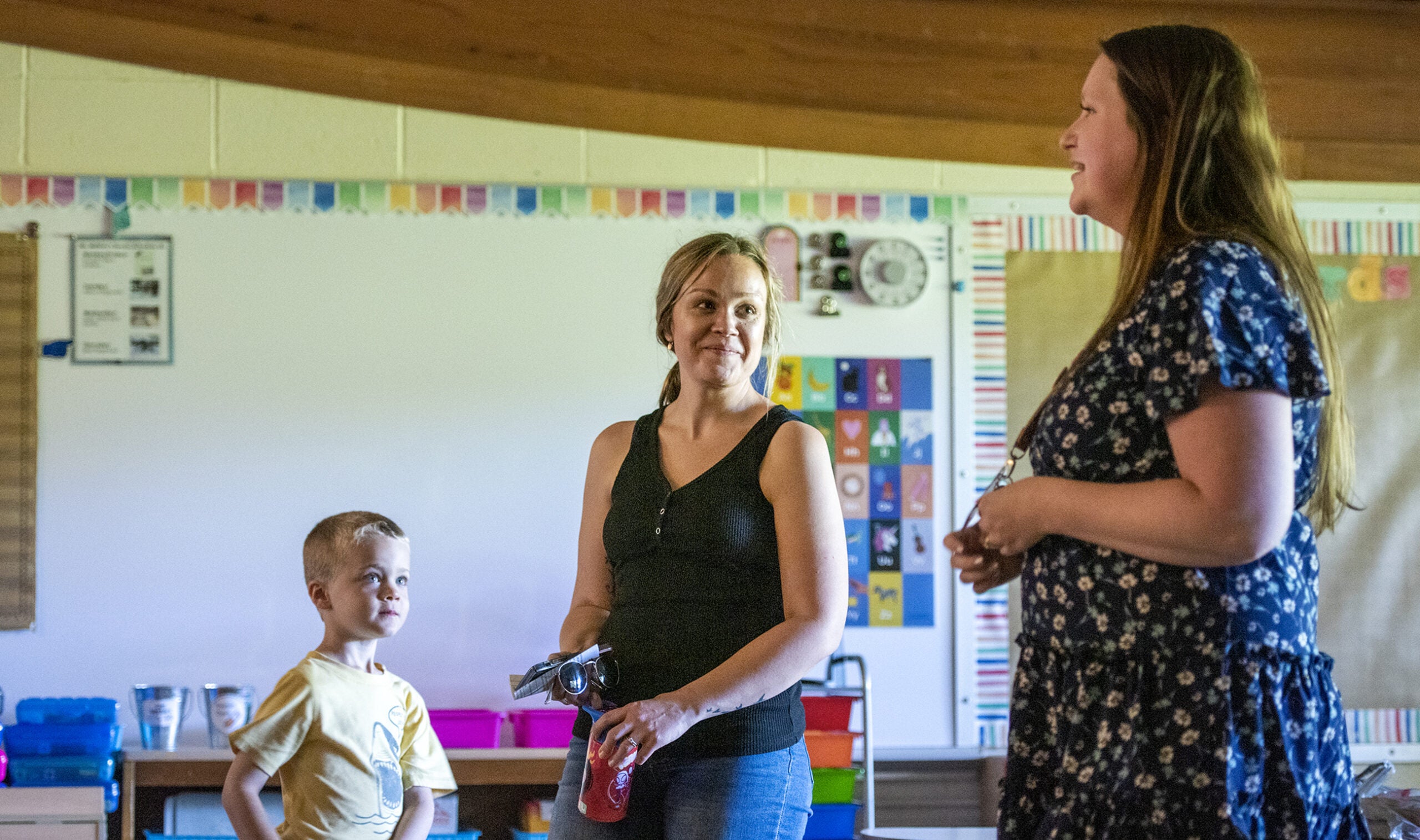Here’s something I will always be envious of: People who can speak more than one language.
I have tried learning languages in different ways. Classes. A long streak on a popular language app. It never seems to stick. It feels like I don’t have a knack for it.
I think that we all have the potential to learn to do new stuff. Even when we think we are built-in bad at something, we can still do it — if we just find the right inspiration, or the right teacher, or the right method, whatever.
Stay informed on the latest news
Sign up for WPR’s email newsletter.
Except for me and foreign languages. And dancing.
So how can language-learning wannabes like me actually learn a language?
I recently got language advice on WPR’s “Central Time” from one of the best teachers in Wisconsin.
Jessica Sertling Miller was named the 2024 Teacher of the Year by the Wisconsin Association For Language Teachers. She’s a French language professor at the University of Wisconsin-Eau Claire.
Miller’s love of language started early, in her childhood in Strasbourg, France.
“I was always interested in English because in France, we heard a lot of English language music on the radio, and I was very annoyed that I didn’t understand the lyrics,” she said.
What better reason to learn a language?
That takes us to step one of her language advice for learners like me.
What’s my motivation?
Whether it’s song lyrics or something else, Miller says we need to figure out why we’re learning the language in the first place.
“The first thing to do is identify your goal or your goals,” she said. “Why are you interested in learning a language? Is it just to get your brain exercising, or are you going to travel, or is there someone you met that you want to talk to?”
Make it a routine
Whether we’re using an app, taking a class or meeting with a group, Miller says the key is to keep doing it.
“You need to make it part of your routine. You need to make it easy for you to have the opportunity to practice. A little bit every day goes a long way,” she said.
Get sociable
“Learning a language is really social. That’s why we learn languages,” Miller said. “So I would recommend looking for other people who are learning languages to motivate each other, maybe even a group of people who know the target language to practice with.”
Avoid disappointment
It’s easy to be impatient and expect fast progress in language learning — for me, anyway. But it’s important to set expectations, Miller says.
“Learning a language takes time,” Miller said. “There is gratification at the beginning because when you start from knowing nothing and then you learn 10 words, that’s huge. But then the more you get into the language, the slower it’s going to feel, and that’s where the motivation can decrease.”
Talk!
You want to get good at a language? Miller says you gotta talk to people. In that language.
“When you speak, you’re actively using the language,” she said. “There are passive ways to study a language like reading or watching videos, but it’s totally different to be actively using it and it’s more difficult.”
That’s the sticking point for me. I know — I KNOW — the only way I will lock in a language is to start speaking it. But I get really nervous when I try to do that.
The good news? That’s normal.
“It’s hard because when you talk spontaneously, you’re really putting yourself in a vulnerable position,” Miller said. “In a second language, you don’t have full control of what you say or how you’re going to be perceived, but you get real time feedback.”
Miller says it’s important to have a sense of humor about our language mistakes — like the time she confused a worker at an ice cream counter by ordering “cookie duff” ice cream, rhyming “dough” with “rough.”
Bonus advice from Jessica Miller
- Watch YouTube videos in the language you’re learning, and slow them down if needed.
- Practice with real materials, such as magazines, TV shows and movies — not just classroom materials.
- To learn verbs, start by making a list of 10 or so that are meaningful to you instead of working your way through an alphabetical list.
- Approach language learning as something fun instead of a chore.
I’ll try that language advice from one of the best teachers in Wisconsin, and you can, too. Good luck! I mean, “Buena suerte”?
Wisconsin Public Radio, © Copyright 2025, Board of Regents of the University of Wisconsin System and Wisconsin Educational Communications Board.




